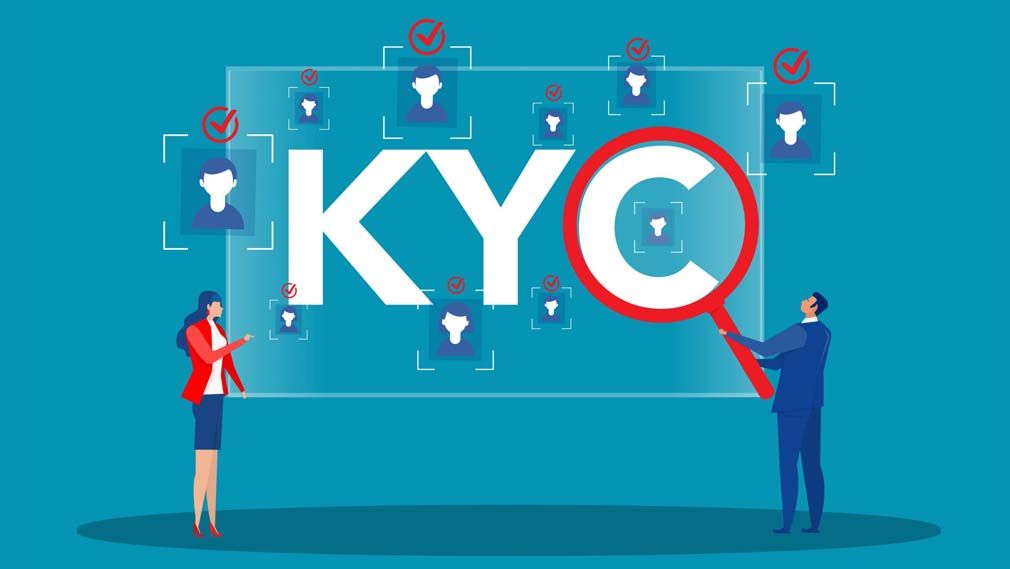KYC And Cybersecurity: Protecting Data From Cyber Fraud
Traditionally, cyberthreats have been largely isolated to attacks on computer systems and networks. However, with the advent of digital transformation, cyberattacks are now targeting people and businesses at an unprecedented rate.
According to a report from Accenture’s State of Cybersecurity Resilience 2021, cyber threats have increased by over 30% from 2020 to 2021. Cyber fraud is fast becoming one of the biggest threats to today’s businesses, with the cost of cybercrime predicted to hit $10.5 trillion by 2025.
KYC And Cyber Fraud
KYC fraud occurs when a cybercriminal uses stolen or fake identity documents to open an account or obtain credit in someone else’s name. This type of fraud can have devastating consequences for both the individual and the business involved.
Fraudsters can trap customers easily by offering services that are too good to be true or by using phishing techniques to obtain sensitive information such as login credentials or financial data. Once they have this information, they can use it to commit identity theft, take out loans in the victim’s name, or make unauthorized purchases.
Types Of KYC Frauds
- Phishing: Phishing is one of the most common types of cyberattacks. It involves fraudsters masquerading as legitimate entities in order to trick victims into divulging sensitive information.
- Identity Theft: Identity theft occurs when a criminal obtains and uses someone else’s personal information, including their name and address, to take out loans, make purchases, or apply for credit.
- Smishing: Smishing is a type of social engineering fraud that involves sending phishing text messages to unsuspecting recipients. This technique can be used to trick people into revealing their login credentials, banking details, or other sensitive information.
- Fake Re-KYC: Fake re-KYC scams are becoming increasingly common as businesses are required to update their customer records on a regular basis. In this type of fraud, fraudsters pose as representatives from a legitimate organization and request that customers provide updated KYC information, such as their passport or driver’s licence details.
KYC Data Breach
Despite the importance of KYC in cybersecurity, data breaches are still a very real threat. Recent instances of KYC data breaches include the CDSL’s KYC arm which reportedly exposed the personal and financial data of more than 40 million investors twice within just 10 days.
Additionally, the Upstox data breach exposed the personal data of about 2.5 million customers, leading to a probe by the RBI’s cybersecurity team. To protect the data from cyber fraud and cyberattacks, it is important to implement robust KYC procedures and invest in state-of-the-art cybersecurity tools and systems.
Following the incident, Ravi Kumar – the co-founder and CEO of Upstox (India’s largest brokerage firm), stated on the company’s website: “We would like to assure you that your funds and securities are protected and remain safe. Funds can only be moved to your linked bank accounts and your securities are held with the relevant depositories. As a matter of abundant caution, we have also initiated a secure password reset via OTP.”
KYC And Cybersecurity
Know Your Customer (KYC) has become a vital part of any business’ cybersecurity strategy, as it helps to weed out potential cyber fraudsters and protect customer data. Consumers are vital stakeholders in any cybersecurity strategy, and businesses must take steps to help them protect their personal information online.
There are many KYC best practices that businesses can implement to help protect themselves from cyberattacks, including:
- Implementing multi-factor authentication (MFA)
- Conducting regular background checks on employees
- Keeping up-to-date with the latest security threats
- Educating employees on cybersecurity risks
- Implementing strong password policies
- Monitoring employee activity for suspicious behavior
- Restricting access to sensitive data
- Encrypting customer data
- Backing up
Gaining Trust Of All Stakeholders
According to research, 88% of the customers say that their trust in any business is based on how they handle their data and offer security.
Anil Advani, from Pure VPN, believes that cybersecurity is the means to gain the trust of customers and stakeholders alike. By implementing strong KYC policies and best practices, businesses can help protect their customers from the growing threat of cyber fraud and data breaches.
He quotes, “Due diligence is a routine part of any acquisition. Identity verification is very important these days due to an increase in cybercrime. Customers, partners, shareholders, and prospective employees want evidence that the organization can protect its sensitive data. Without a cybersecurity policy, an organization may not be able to provide such evidence.”
Pairing Cybersecurity With Regulatory Requirements
Dan Blum, Principal Consultant at Security Architects Partner, believes that businesses must pair their cybersecurity efforts with regulatory requirements to be fully compliant.
“Service providers must protect the value of customer’s information systems or data, as well as customer privacy rights using sound, risk-based cybersecurity practices as a matter of due diligence. KYC requirements must be aligned and balanced with a good understanding of the laws and business requirements,” he stated.
He believes that organizations should also consider conducting independent security audits regularly to identify potential vulnerabilities. These audits can help organizations understand where they need to improve their cybersecurity posture and make the necessary changes to mitigate risk.
The Bottomline
In conclusion, as data breaches continue to plague businesses of all sizes, it is more important than ever for organizations to implement robust KYC procedures and invest in state-of-the-art cybersecurity tools and systems. By following the best practices outlined above, businesses can help protect their customers’ personal information online and gain the trust of all stakeholders.
About Signzy
Signzy is a market-leading platform that is redefining the speed, accuracy, and experience of how financial institutions are onboarding customers and businesses – using the digital medium. The company’s award-winning no-code GO platform delivers seamless, end-to-end, and multi-channel onboarding journeys while offering totally customizable workflows. It gives these players access to an aggregated marketplace of 240+ bespoke APIs that can be easily added to any workflow with simple widgets.
Signzy is enabling ten million+ end customer and business onboarding every month at a success rate of 99% while reducing the speed to market from 6 months to 3-4 weeks. It works with over 240+ FIs globally, including the 4 largest banks in India, a Top 3 acquiring Bank in the US, and has a robust global partnership with Mastercard and Microsoft. The company’s product team is based out of Bengaluru, and it has a strong presence in Mumbai, New York, and Dubai.
Visit www.signzy.com for more information about us.
You can reach out to our team at reachout@signzy.com
Written By:

Signzy
Written by an insightful Signzian intent on learning and sharing knowledge.



